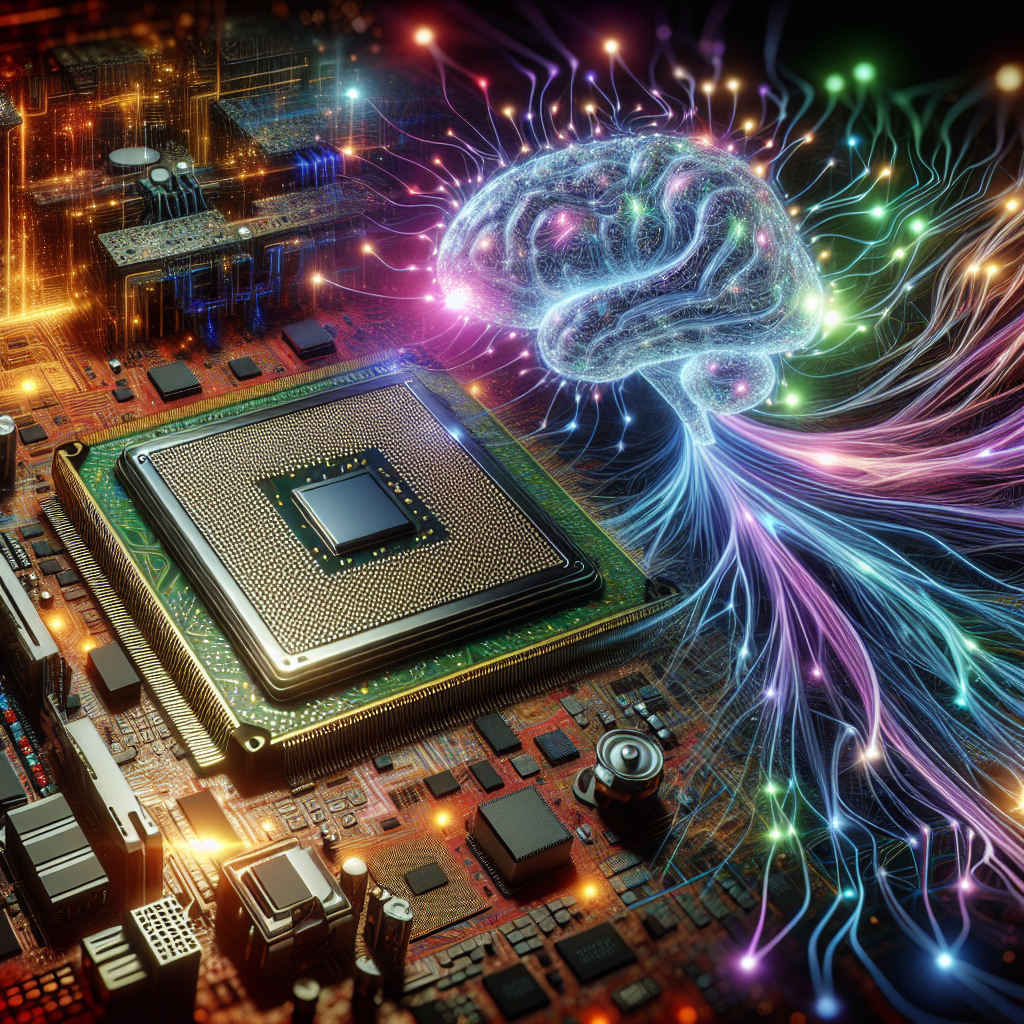The Evolving Gaming Hardware Landscape: Insights and Speculations
The gaming hardware realm is a domain perpetually teetering on the edge of tomorrow, fueled by an insatiable drive towards the novel and the efficient. At the vanguard of this relentless progression stands artificial intelligence (AI), an enigmatic yet potent force capable of catapulting gaming experiences into new echelons. Today, we slice into the meat of this pulsating topic, guided by the frank and invigorating dialogue courtesy of the "Broken Silicon" podcast, a lighthouse for gaming and hardware aficionados.
The Promise of AI: A Double-Edged Sword
The gaming industry's infatuation with AI is no mere flirtation; it's a deep-seated love affair that is reshaping the contours of what games are and what they can be. The integration of AI into hardware is not just imminent – it's here, lurking inside devices, subtly yet significantly altering the landscape.
Couched within this tech tango is the concept of the infinity Fabric, initially viewed as AMD's Achilles heel but now recognized for its strategic brilliance. This connective tissue between components is a testament to the power of partnerships and proprietary technologies, forming a triad of tech titans – AMD, Intel, and NVIDIA – each pioneering their own versions of a future interwoven by interconnected fabrics.
The surge of specialized ASICs (Application-Specific Integrated Circuits) in hardware and their accelerative impact on AI is a dance of functionality and necessity. Yet, this shiny new age raises a fair question: Are CPUs becoming passé? Hardly. CPUs are currently in an enthralling intermission, awaiting a new act—a new paradigm shift that will reignite the flames of intrigue for gamers and developers alike.
Paradigm Shifts in Gaming
The evolution of CPUs, once heroes of computational advancement, now hangs in a liminal space, awaiting the dawn of fresh gaming paradigms that will thrust them back into the limelight. This renaissance is not about chasing incremental FPS (frames per second) boosts but rather unlocking new game mechanics, harnessing asynchronous computations, and determining which accelerators will usher us into the next epoch of gaming.
Mobile: The Unexpected Breeding Ground for Innovation
Ironically, it's the mobile phone, a device that many wrote off as having plateaued post the Galaxy S2/S3 era, that may become the frontline for AI-powered transformation. As users yearn for more than just better screens or cameras, AI's entry into mobile applications could spark a renaissance of utility, birthing features that grip consumers’ imaginations and redefine the mobile experience.
Windows 12 and the Race for AI Integration
Microsoft's apparent rush to release Windows 12, potentially integrating ChatGPT at its core, signifies a clash of titans as they vie to be first to market with seamlessly integrated AI features. Apple, too, with its neural engines, seems armed for a similar coup. This feverish competition underscores the paradigm shifts on the horizon, with AI poised as the matchstick ready to ignite.
The Co-Pilot Key: A Nod to AI's Ascendancy
Perhaps one of the most telling harbingers of change is the emergence of AI-dedicated keys on next-generation laptops. This feature underlines the increasing centrality of AI in our interactions with technology, heralding a future rife with moral and ethical quandaries but undeniably rich with potential.
The Hardware Battleground: AMD, Intel, and Nvidia
This ongoing saga of hard-fought battles in gaming hardware pits stalwarts against each other, each with its own arsenal of technologies. AMD's penchant for copious memory on their cards resonates with smaller operations, potentially laying the groundwork for the emergence of the next tech titan.
On the other hand, Nvidia, with its quasi-closed ecosystem, continues to appease and reassure its user base with the promise of exceptional, cutting-edge hardware. However, this approach may eventually sway more minor players to AMD's more open platform, symbolizing a crack in NVIDIA's seemingly impenetrable armor.
Intel, still nursing the bruises from the failed ARM acquisition, finds itself at a crossroads, potentially seeking alliances with the likes of Nvidia to bolster its position in the AI and graphics realm.
The Next Frontier: Generative Technology and AI
The role of generative technology in gaming holds vast, untapped potential. As developers experiment with AI to generate high-resolution textures from low-resolution templates, the possibility of dramatically downsizing game files while retaining visual fidelity looms large. This approach could revolutionize the way we store and interact with gaming content, underscoring AI's transformative power in the gaming sector.
Final Thoughts
As we stand on the cusp of this brave new world, where gaming hardware and AI converge, it's evident that we are witnessing the genesis of a new era. It's a world where the traditional paradigates of gaming are being upended, setting the stage for a future where AI doesn't just augment our reality – it reshapes it entirely.
With the stakes higher than ever, the gaming industry's players—both figurative and literal—are gearing up for a journey into uncharted territories. It's a future ripe with possibility, riddled with complexity, and teeming with the thrilling unknown. Strap in, gamers and technophiles, the best is yet to come.
For those craving a deep dive into this riveting discussion that lays bare the currents shaping our technological seas, lend your ears to the enlightening and always electric "Broken Silicon" podcast, where gaming hardware and AI intersect with unabashed candor and perspicacity.
Here's an additional resource on gaming AI
Learn more about the infinity Fabric
And remember, as we sail into this brave new world, the choices we make today will echo in the digital realms of tomorrow.
Related News
- Navigating the AI Evolution in Gaming: From Theory to Inevitable Reality
- Unraveling the Conundrums of Modern Gaming Hardware: A Dive into 'Broken Silicon'
- Navigating the Turbulent Seas of Tech: A Deep Dive into the Hardware Ecosystem
- The Evolving Landscape of PC Gaming: Enthusiasts, AI Integration, and the Race for Power Efficiency
- The Chess Game of AI Innovations: A Deep Dive into Recent Developments
